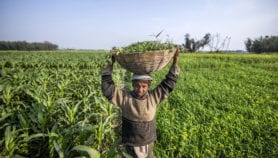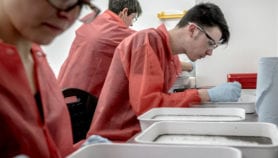By: Mićo Tatalović
Send to a friend
The details you provide on this page will not be used to send unsolicited email, and will not be sold to a 3rd party. See privacy policy.
[NOTTINGHAM] This was the conclusion of research presented at the Science in Public Conference 2013 by Eveline Compaore, researcher at the University of Nottingham, which hosted the meeting this week (22-23 July).
She looked at the role of civil society groups in Burkina Faso's innovation and development through a case study of the introduction of genetically modified (GM), pest resistant Bt cotton to her country.
Burkina was the first West African country to embrace the GM technology, she said, but it did so outside of the public view initially.
A combination of pest damage and Monsanto's silver bullet Bt cotton solution in the late 1990s meant the government started field trials covertly as early as 2000, not making these publicly known until 2003, and eventually introducing the GM crop commercially in 2008.
The civil society groups learnt about the trials by chance while attending a conference in nearby Senegal, where the research was discussed, she said.
This triggered the civil society to strongly campaign for regulation of GM technology in the country, leading to official regulation being passed in 2004.
So the civil society's protests helped accelerate the adoption of rules and regulation for biotechnology, she said. But they did not protest because they opposed the technology, but because they were fighting for 'safe innovation', she said.
"They're not against innovation, they're about safe innovations," she said.
Civil society's focus on the implications of biotech for health, public policy and ethics also meant they did not have much influence on the way the benefits of such technology were shared with farmers.
And cotton farmers now face a world in which their seed comes exclusively from Monsanto and they rely for all of their related needs, such as pesticides, on a single company, with little fallback, she said.














